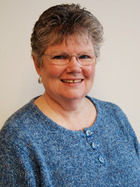Resource Navigation
Learn more about how CancerCare Resource Navigation can help you address barriers to care.
Connect Education Workshops
Listen in by telephone or online as leading experts in oncology provide up-to-date information about cancer-related issues in one-hour workshops. Podcasts are also available.
Podcasts
Veterans
- Veterans Living with Cancer, Jun 26, 2020
Publications
Read or order our free Connect booklets and fact sheets offering easy-to-read information about the latest cancer treatments, managing side effects and coping with cancer.
For Any Cancer Diagnosis
Financial Assistance
Limited assistance from CancerCare is available to help with cancer-related costs.
Ask CancerCare
Every month, featured experts answer your questions about coping with cancer including specific answers to questions asked by caregivers.
For Any Cancer Diagnosis
- Q.
My father has been diagnosed with cancer and does not have insurance. He is a vet—how do I get him treatment?
A.Your father may qualify for Veterans Affairs (VA) health care benefits if he served in active military service and was released under any condition other than dishonorable. An application can be submitted regardless of how long it has been since your father’s service and discharge. Call 1-877-222-VETS (8387) or visit www.va.gov/healthbenefits for more information and to begin the application process.
If he is a Vietnam era veteran who served in Vietnam or specific areas of Korea and Thailand, he may be eligible for compensation under the Presumptive Service-connected Agent Orange Disability Compensation.
Other options you can explore include state and federal health care programs. Eligibility for health care is based on age, income, or pre-existing disability.
If he is ineligible for public programs, high-risk health insurance pools allow patients who have been denied coverage due to pre-existing conditions to buy a policy. The cost may be high and there may be a waiting list, but it’s cheaper than being uninsured and paying out of pocket. The National Association of State Comprehensive Insurance Plans lists high-risk pools by state.
Hospitals and clinics may offer charity care and sliding scale programs (fees based on his income). Some hospitals are required to see patients who are uninsured. Contact your local department of public health, social services, or business office of your hospital of choice for more information.
The Patient Advocate Foundation provides advice and guidance on insurance related issues.
If your father registers with the VA, they have a number of services designed specifically to support the family caregivers.
Finally, CancerCare caregiver services are free of charge and available to anyone affected by the cancer diagnosis.
- Q.
My father, an Air Force veteran, died from cancer three years ago. He was exposed to Agent Orange in Vietnam. Have there been any studies on the health of children of veterans? I have been diagnosed with cancer.
A.Studies have been conducted, but the focus has been on birth defects in children of veterans who were exposed to Agent Orange. There is a registry for these children maintained by the National Birth Defect Registry. At present, there appears to be no mention of diseases that develop later in life for children of veterans who were exposed. These children are no more than 50 years old and may not have been diagnosed with other diseases yet.
If they have (as in your case), they may not be reported or the individual might not link them to a parent’s exposure. Many veterans are only now beginning to be diagnosed with various diseases that may be related to Agent Orange, so diseases in their adult children will hopefully become a new area of research.
If your father did not file a claim for service-related disability compensation, a family member can file a claim. If a Vietnam veteran dies of a medical condition considered to have resulted from exposure to Agent Orange during military service, certain surviving family members may be eligible for monthly compensation payments through the VA’s dependency and indemnity compensation (DIC) program. Many Veterans Service Organizations offer free assistance to help you present your claim to the VA.
Additional resources about Agent Orange exposure and cancer include:
- The Department of Veterans Affairs website section, Research on Health Effects of Herbicide Exposure
- The American Cancer Society’s Agent Orange and Cancer
- Cancer.Net’s Veterans Information
- Q.
I am a veteran, and I was diagnosed with cancer in 2011. I am not working and I need assistance to help me pay for new glasses. I have applied for disability and was denied, but I am appealing the decision. Can you point me to an organizations that may help me?
A.If you have not already done so, please check with the Veterans Administration (VA). Veterans who meet specific VA criteria have access to vision and hearing exams in addition to free eyeglasses and hearing aids. Veterans with any compensable service-connected disability, former POWs, Purple Heart recipients, and certain housebound veterans are among those who qualify.
You might also check with your local Veterans of Foreign Wars and American Legion to ask if they sponsor any eye care programs to help fellow veterans.
Finally, there are community service organizations whose mission is to give back to the community in particular ways.
Lions Clubs International provides financial assistance to individuals for eye care through local clubs. There are Lions Clubs in most localities, and services vary from club to club. Check your telephone book for the telephone number and address of your local organization.
New Eyes for the Needy provides vouchers for the purchase of new prescription eyeglasses. Eligibility guidelines apply.
For other possible resources, please read CancerCare’s fact sheet, Finding Resources in Your Community.
Specialized Programs
CancerCare offers specialized programs to address specific populations and concerns.
Coping Circle Workshops
Virtual educational and supportive workshops led by oncology social workers and qualified co-facilitators. These workshops cover numerous topics and are offered in English and Spanish.
Additional Resources
Organizations
BenefitsCheckUp
Disabled American Veterans (DAV)
Fisher House Foundation
U.S. Department of Veterans Affairs

 Answered by
Answered by